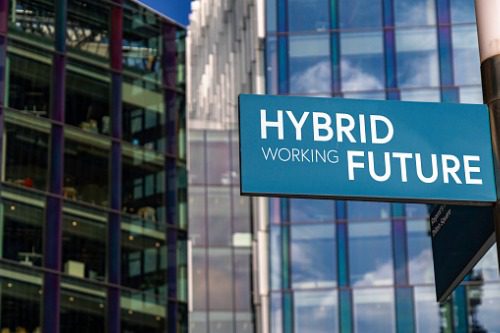RSA makes a landmark commitment to its hybrid working model

Authored by RSA
Since emerging from the pandemic, at RSA we’ve been exploring how to successfully make hybrid working a permanent feature of how we work.
Ken Norgrove UK&I CEO said, “Our ambition throughout has been for our people to perform effectively wherever they work, delivering second-to-none experiences for our customers while embracing the flexibility that hybrid working offers.”
We’ve been monitoring the impact of the hybrid working trial that we’ve run over the past six months, reviewing the data from a people, customer, and business perspective. We’re delighted to announce that -following this trial, and consultation with Unite and The Managers Association- we have confidence that this is the right model for us. We’ve therefore made a landmark long-term commitment to hybrid working, enshrining in a new policy flexibility for current and future colleagues.
RSA Families – one of our Employee Resource Groups (ERGs) – welcomed the news. Helen Simpson, co-chair, RSA Families ERG commented, “The objective of our RSA Families ERG is to support working parents and carers to be able to bring their best selves to work, whether work is at home or at the office. We have seen hybrid working make a massive difference in this space. Parents may be able to flex working hours when at home to fit in the school run, attend school assemblies, go to those important meet-the-teacher events for example.”
“Meanwhile, carers can weave their caring responsibilities into their working day. At RSA, we recognise that delivery of outcomes is the focus, not working within a rigid 9-to-5 timescale. Our people are flourishing and productivity is high because our colleagues have a work-life balance that many simply didn’t have before the pandemic. How our business has adapted to a very different way of working and the positive impact this has had on our working parents and carers is fantastic to see and experience.”
The success of the trial has been attributed to the concerted effort of all colleagues to adapt, make the most of opportunities for time spent to together to collaborate, learn and socialise and shift up the priorities for solo working times at home, such as subject matter requiring more intensive focus.
Alongside this, we’ve made several targeted investments and interventions to proactively address potential challenges, such as increasing training on subjects like menopause awareness, mental health first aid and domestic violence awareness.
Understanding that, if not well managed, hybrid working as BAU could disproportionately affect early careers and new starters, we’ve made a substantial investment in our onboarding processes, creating a new employee experience portal from recruitment to a year in the role. Equally, our hybrid working policy enshrines commitments leaders must make to a minimum of in-person interaction for all early careers employees.
For colleagues who work closely with the broking community the balance of office working ensures our designated locations have a consistent presence for our customers.
We’ve also kept up a higher pace of internal communications since Covid, increasing the number of avenues we use to connect with colleagues on company culture and values. Growing the roster of employee resource groups has been of real value here as well.
This commitment to flexible working approaches comes shortly after the recent ABI recommendations on ways to better enable women in the workplace, which RSA is wholly supportive of. After all, research has shown that a lack of flexibility in roles can present a barrier to women with childcare commitments or those returning to work following maternity leave.
Ken Norgrove added, “Hybrid working will continue to be a core component of setting our business up for outperformance, allowing us to work together more effectively and to deliver good outcomes for our customers wherever we work. It will help us continue to deliver on our business objectives, to make the most of our face-to-face time together to collaborate, and to provide an attractive and engaging work proposition for all of us.”
We’re really looking forward to this new phase. But of course, the essence of hybrid working is flexibility and adaptation. So, we’ll continue to monitor the effectiveness of how we work, paying particular attention to talent development, collaboration, simplifying our business, productivity and being present for brokers and customers.





